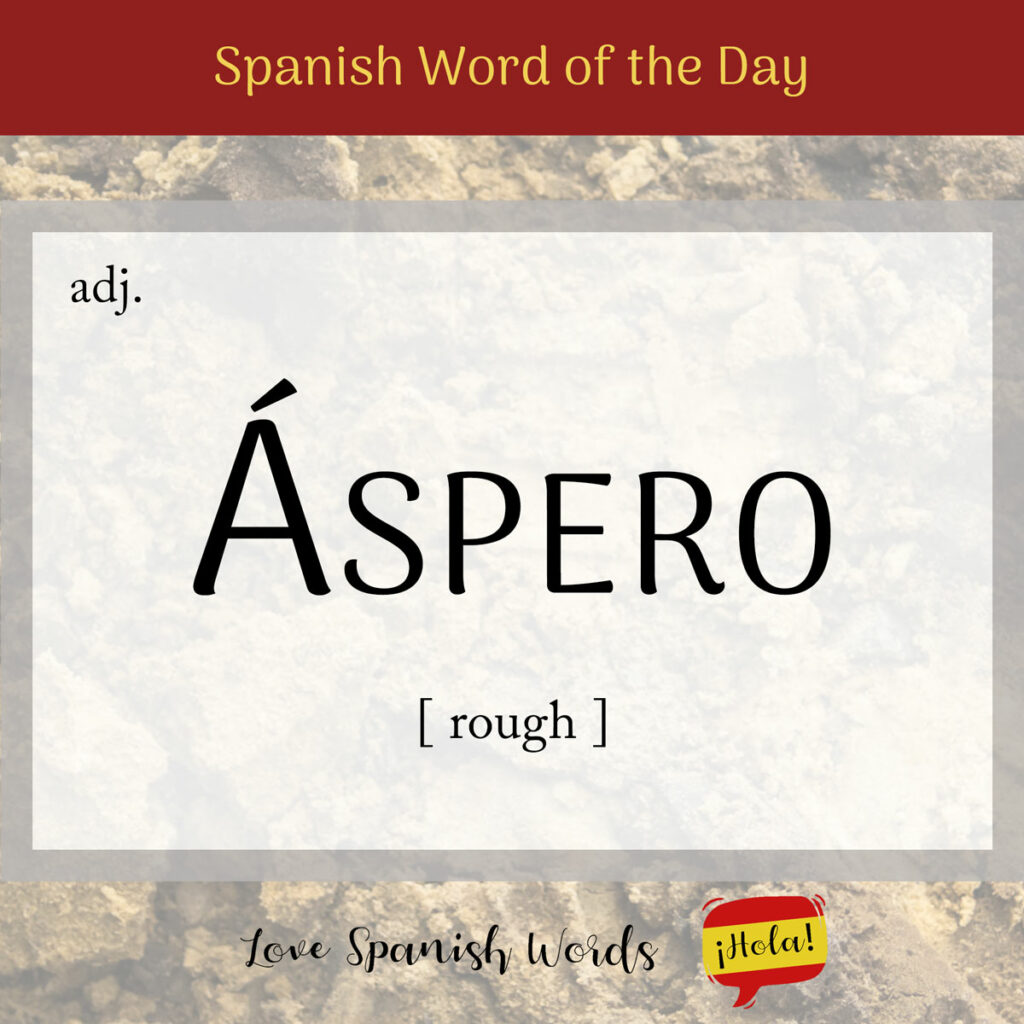The Spanish word áspero comes from the Latin word asper, which means rough in English. This term was associated with the physical and abstract characteristics of a surface and also with a person’s difficult temperament.
Latin American Pronunciation
European Pronunciation

The word áspero is an adjective that can be feminine or masculine depending on the subject it’s describing. Áspero can describe many things such as textures, flavours, temperaments, and terrains.
When used to describe something’s superficie (surface), it refers to the textura (texture) of something such as furniture, a piece of cloth, a wall, a fruit or vegetable, or anything else with a surface.
La pared exterior de la casa tiene un acabado áspero.
The exterior wall of the house has a rough finish.
You can also use it to describe terreno (terrain), such as roads or trails that are bumpy and rough. An example would be: tardamos mucho para llegar porque el camino estaba muy áspero. (It took us a long time to arrive because the road was very rough.)
To describe a person’s carácter (temperament) as being rude or difficult, you can use áspero. To say someone answered rudely, an example would be: tu respuesta áspera a mi pregunta fue innecesaria. (Your rude answer to my question was unnecessary.)
Another way to use áspero is to describe an unpleasant or strong sabor (flavor). This can be related to any kind of food or drink such as wine, limes, beans, garlic, coffee or any other food or drink you consider to have a strong or unpleasant flavor.
No me gusta la cebolla porque tiene un sabor áspero.
I do not like onion because it has a strong flavor.
The word áspero can also be used as an adverb to indicate that something is done roughly, harshly, or abruptly: ásperamente. For example: “El alumno respondió ásperamente cuando el profesor lo regañó”. (The student responded harshly when the teacher scolded him.)

Quick Note: Most adverbs in Spanish end with -mente similar to how many adverbs use -ly in English. Some examples:
- lentamente = slowly
- regularmente = regularly
- felizmente = happily
- probablemente = probably
Some synonyms for áspero include rugoso (rough), rudo (rude/hard), tosco (rough), and abrasivo (abrasive). Temperament adjectives include brusco (rude), duro (harsh), and severo (severe).

Spanish sayings and idiomatic expressions featuring “áspero”
Cria fama y échate a dormir, que si áspero es el comienzo, peor es el porvenir.
Literal translation: Create fame and go to sleep because if the beginning is rough, the future is worse.
English meaning: Early actions and attitudes can have long-lasting consequences.
Aparentar áspero
Literal translation: to appear/pretend to be rough
English meaning: to have a kind heart despite pretending to be or look rough on the outside

